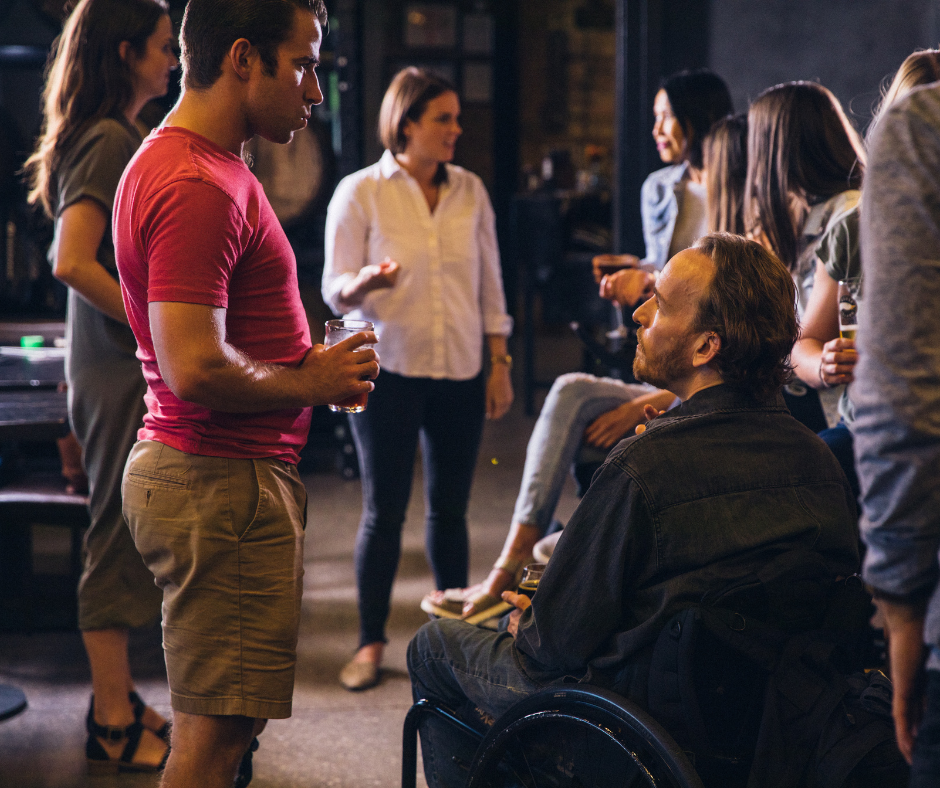Illuminate Adelaide 2025 has arrived—and with it, the lights, music, innovation, and culture that make this event one of South Australia’s most anticipated festivals. With many exhibitions designed to be inclusive for people with disability, it’s more than a visual spectacle—it’s a celebration of access, inclusion, and creativity.
For NDIS participants, these events offer rich opportunities to engage socially, build confidence, and experience culture firsthand. But the experience is only as empowering as the support provided. That’s where NDIS providers play a crucial role.
Here are 10 essential actions every NDIS provider should take to ensure participants feel included, supported, and safe during large public events like Illuminate Adelaide.

1. Discuss the Event in Advance
Help participants explore the program and choose the events they’d like to attend. This empowers them to make decisions aligned with their interests and promotes choice and control.
Why it matters: Informed planning ensures the participant’s voice is heard—and respected.
2. Make a Personalised Support Plan
Develop an individualised plan for each participant attending, factoring in the nature of the event, sensory preferences, support ratios, accessibility needs, and rest breaks.
Why it matters: Every participant’s comfort and safety depend on tailored support.
3. Confirm Accessibility of Venues
Research venue accessibility features like wheelchair access, companion card acceptance, quiet spaces, audio guides, Auslan interpreters, and sensory-friendly session times.
Why it matters: Proactive planning avoids last-minute accessibility challenges.
4. Coordinate Transport in Advance
Organise accessible transportation options—including arrival/departure times and pick-up points—so participants can enjoy the event without stress.
Why it matters: Transport issues are among the most common barriers to participation.
5. Prepare Support Workers
Train staff in advance about the event layout, emergency procedures, cultural awareness, and how to support participants respectfully in crowded or unfamiliar environments.
Why it matters: Well-prepared staff build participant confidence and safety.
6. Monitor Participant Wellbeing During the Event
Support workers should check in regularly, help manage overstimulation, and adjust plans if needed. Respect a participant’s right to leave early or take breaks.
Why it matters: Flexibility and emotional support turn a good experience into a great one.
7. Encourage Independence
Let participants take the lead where possible—choosing exhibits, asking questions, or handling money for food and souvenirs.
Why it matters: Real-world settings like events build daily living and decision-making skills.
8. Promote Social Participation
Group bookings with other participants can help build friendships and promote inclusion. Create moments of shared joy and conversation.
Why it matters: Social interaction is a key goal under many NDIS plans.
9. Collect Feedback After the Event
Ask participants about what they enjoyed, what could be improved, and how they felt throughout. Use this to shape future community outings.
Why it matters: Feedback deepens engagement and improves service delivery.
10. Celebrate the Experience
Share memories through photos (with consent), create art based on the event, or write about the experience in participant journals or newsletters.
Why it matters: Reflection reinforces positive experiences and strengthens confidence.
Why This Matters
Major community events are not just entertainment—they are key opportunities for building skills, social connection, and cultural participation. As NDIS providers, it’s our role to ensure that participants don’t just attend—they thrive.
At Care and Connects, we’re proud to support our participants during festivals like Illuminate Adelaide 2025. From planning and transport to social interaction and post-event reflection, we’re committed to delivering person-centred, empowering experiences every step of the way.
Resources
